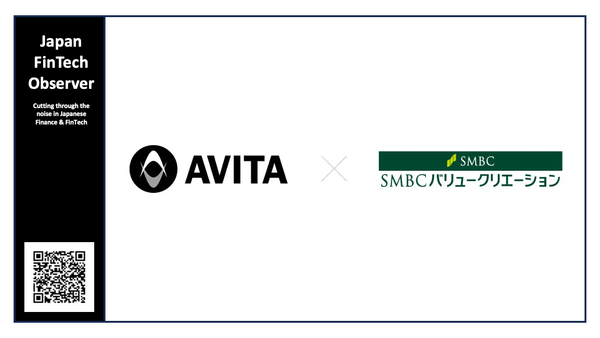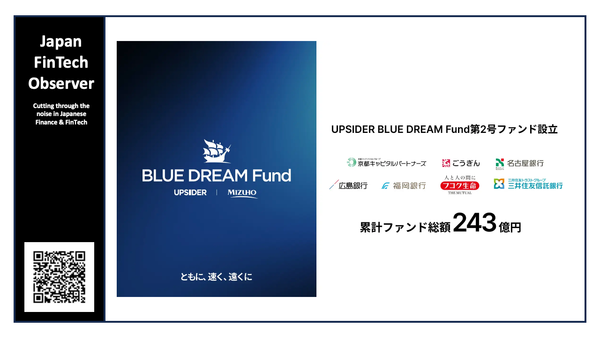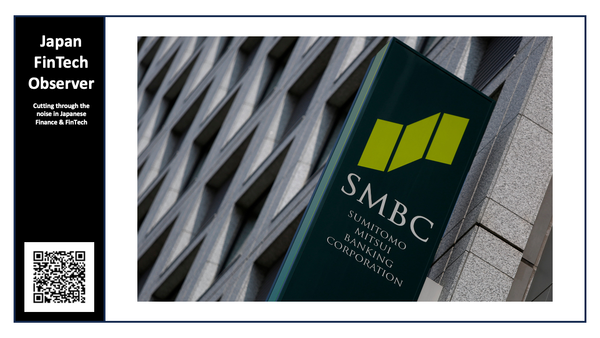JCB and Toyota Coniq Alpha let individuals designate shared data
JCB and Toyota Coniq Alpha will implement a “Loose Linkage™” proof of concept starting in fiscal year 2024, together with four proof of…

JCB and Toyota Coniq Alpha will implement a “Loose Linkage™” proof of concept starting in fiscal year 2024, together with four proof of concept partners, aiming for a society where individuals, not specific business operators, designate the scope of their data to be connected and utilized.
Purpose of the Loose Linkage™ Proof of Concept
The digitization of society as a whole is progressing. In particular, the Covid-19 pandemic accelerated the digital transformation movement in Japan. While some people feel the appeal of convenience, others are concerned about information management, revealing challenges in data utilization.
According to the White Paper Ver. 3.0 released in November 2023 by the Digital Market Competition Headquarters of the Cabinet Secretariat, the “Trusted Web” indicates issues such as “privacy concerns” arising from data being aggregated and integrated using platform operators’ accounts, email addresses, etc. as identifiers, leading to unintended use of individuals’ data, and “sustainability concerns for ecosystems” due to the winner-take-all effect, where specific business operators effectively lock in individuals’ data by having multiple customer touchpoints that many people depend on.
In the physical world, when we need to verify our identity to use a service, we take out our ID from our wallet or pass case at our discretion, provide the information, and then return the ID to its original place where no one else can use it. JCB and Toyota Coniq Alpha aim to verify whether this is also possible in the digital world. The proof of concept, named “Loose Linkage™ Proof of Concept,” incorporates concepts such as self-sovereign identity/decentralized identity and standardized mechanisms like Verifiable Credentials (VC) that prove the trustworthiness of exchanged data.
The four companies participating as proof of concept partners are Dai Nippon Printing (DNP), FeliCa Networks, IDEMIA, and NRI Secure Technologies.
Overview of the Loose Linkage™ Proof of Concept

The proof of concept will involve developing a proof of concept interface consisting of systems and apps, setting use cases that consider mobility data, individual interoperability, and concrete social implementation. The following will be implemented:
- Proof of Concept Target: Newly developed Loose Linkage™ system and personal Loose Linkage™ app
- Proof of Concept Scale: Limited number of participants in a closed environment
- Proof of Concept Model: Construction and verification of interfaces considering standard technical specifications and interoperability
- Use Cases: Requesting credential information such as mDL (mobile Driving License) required for service application from credential issuers, and providing the VC/mdoc to service providers. In this flow, proof of concept for authorization through VC/mdoc exchange, app usage history inquiry, and evidence trail inquiry, as well as attribute information linkage through these.
Roles of Each Company in the Proof of Concept
- JCB: Support for basic concept construction for the proof of concept, overall project planning support
- Toyota Coniq Alpha: Lead entity, overall basic concept and project planning/management
- DNP: Provision of VC issuance/verification base system, development of personal app for VC/mDL (mdoc) exchange, and provision of digital key management system
- FeliCa Networks: Provision of mDL (mdoc) issuance/verification platform for mobile devices
- IDEMIA: Provision of mDL and mDL Verify front-end SDKs for wallet integration, and mobile ID platform
- NRI Secure Technologies: Architecture review for entire DID/VC infrastructure and digital ID wallet, technical advisory based on past verifications for proof of concept development
Background and History of JCB and Toyota Coniq Alpha Collaboration
JCB, a leading company in digital identity with extensive expertise and numerous intellectual properties, and Toyota Coniq Alpha, engaged in creating new value and developing services in the mobility field, agreed in 2021 to collaborate on “digital identity.” They have been jointly conducting research and technical verifications to properly link people’s data with mobility data.
In 2022, they planned a system proof of concept to link multiple driver data and multiple mobility data using standardized technologies (VC, OpenID-related technologies, etc.), as well as a prototype app proof of concept to verify usability when linking data. An assumed use case involved a payment service provider calculating usage fees based on users’ information and mobility data and utilizing them for service providers’ services.

During this process, JCB and Toyota Coniq Alpha jointly filed related patents (e.g., Patent Application №2022–060207) based on JCB’s numerous patents (e.g., №6871296, №7267349).
The prototype app development was carried out in cooperation with Lissi in Germany. Lissi leads the “IDunion Research Project” participating in a program subsidized by the German Federal Ministry for Economic Affairs and Climate Action and provides the EUDI-Wallet Connector solution compliant with the European eIDAS 2.0. JCB and Toyota Coniq Alpha received Lissi’s Lissi ID-Wallet, localized it into Japanese, and verified the user flow and user interface.
Please follow us to read more about Finance & FinTech in Japan, like hundreds of readers do every day. We invite you to also register for our short weekly digest, the “Japan FinTech Observer”, on Medium or on LinkedIn. Our global Finance & FinTech Podcast, “eXponential Finance” is also available through its own LinkedIn newsletter, or via our Podlink.
Should you live in Tokyo, or just pass through, please also join our Tokyo FinTech Meetup. In any case, our YouTube channel and LinkedIn page are there for you as well.




